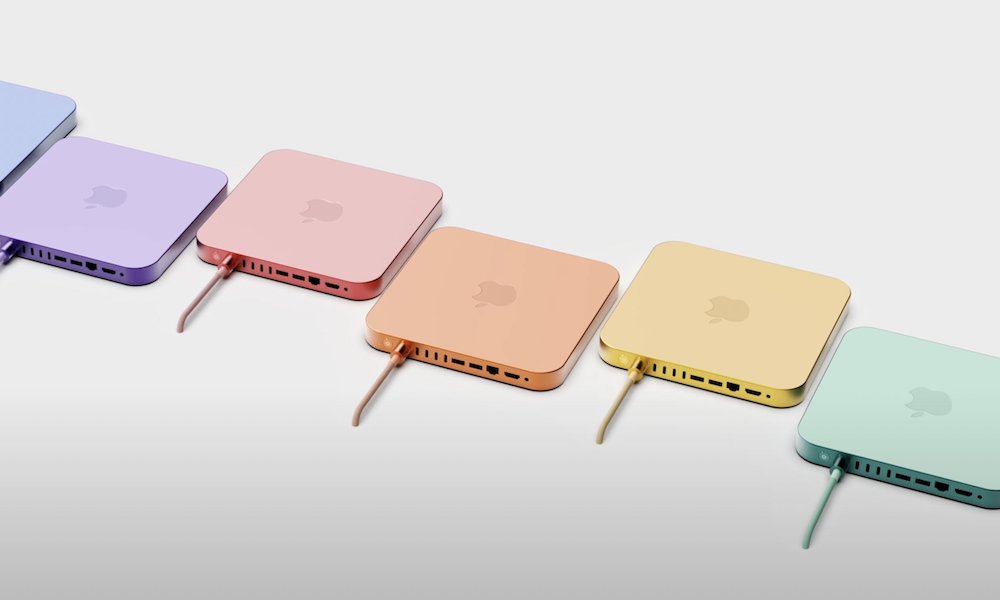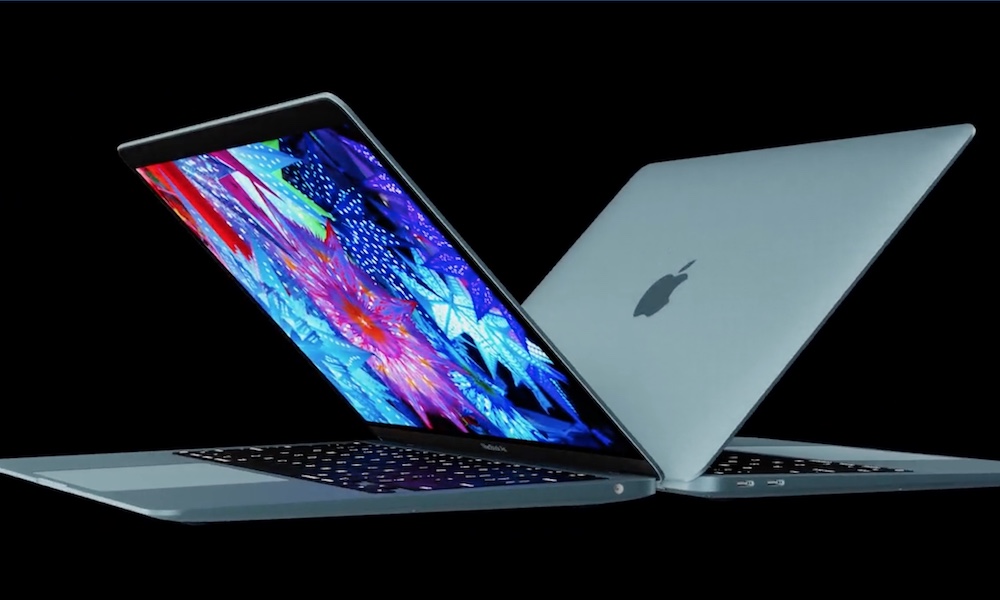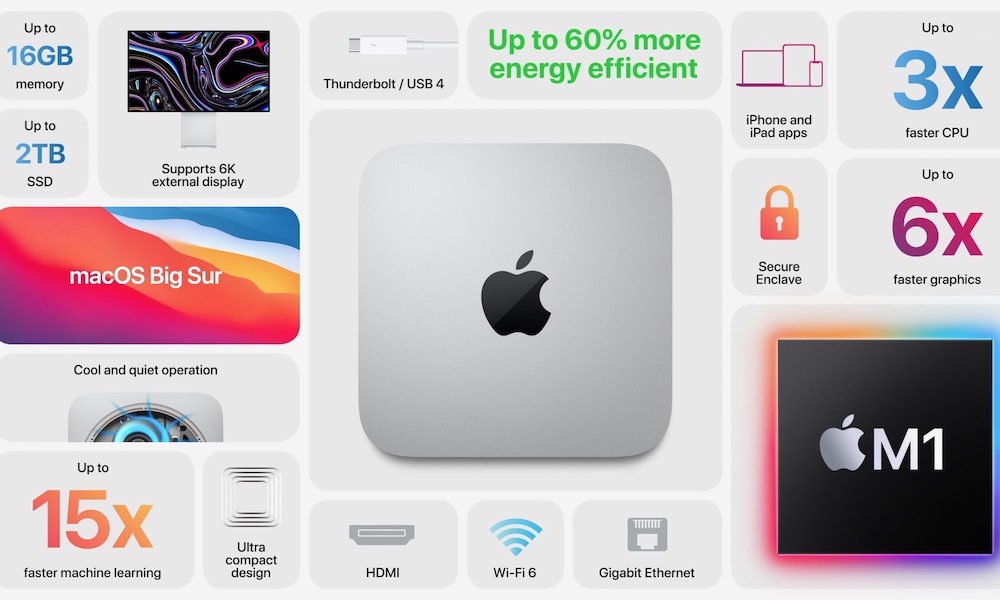Did Apple Cancel the New Mac mini?
 Credit: Daniel ZONEofTECH / Twitter
Credit: Daniel ZONEofTECH / Twitter
Toggle Dark Mode
If you’ve been hoping to see the next evolution of the Mac mini this fall, you may have to wait a little longer. Apple has reportedly scrapped its plans for a new Mac mini this year — if such plans even existed in the first place.
Even though several sources suggested we’d see a new Mac mini at last month’s Peek Performance event, it quickly became apparent that Apple had thrown us a curveball with the new Mac Studio. It’s the same mistake that analysts have admitted making about the 27-inch “iMac Pro,” which most now believe will be an even more powerful Studio Display.
Still, it was unclear what Apple had in mind for the Mac mini. Some hinted that the Mac mini was actually ready to go, and Apple had merely delayed it to avoid taking the spotlight off the Mac Studio. These reports said that Apple was saving some products for later in the year, and the M1 Pro Mac mini is still coming — and in a new form factor, too.
Still pegging a fall timeline, other reports suggest that Apple will skip the M1 and go straight to an M2 and M2 Pro configuration. Since Apple is expected to unveil the M2 MacBook Air this fall, it does sound reasonable that the M2 Mac mini could accompany it — in the same way that the original M1 family debuted in 2020.
What’s less certain is that Apple would pull an M2 Pro chip out of its hat at the same time. While that’s not impossible, it would be unusual to bring its next-generation Pro chip to the Mac mini while the high-end MacBook Pro lineup sticks with the M1 Pro.
However, it would be equally odd for the M2 Mac mini to launch alongside a model that features an M1 Pro or even for Apple to put an M1 Pro into a Mac mini after launching the M2 MacBook Air.
However, according to MacRumors, this whole discussion may be academic, as it appears Apple has canceled its plans for any new Mac mini this year entirely.
There have been multiple signs pointing to this for a while, but more recently, they’ve all been coming together to suggest that the next Mac mini won’t arrive until at least 2023.
For instance, while the oft-reliable Apple analyst Ming-Chi Kuo initially Tweeted that a “more powerful Mac mini” would arrive in 2022, he updated that a few days later to push it into 2023.
Kuo also added that he believes the form factor will remain unchanged, contradicting reports from Jon Prosser last year that Apple was working on a whole new design with a thinner profile and reflective plexiglass-like surface on top.
Along similar lines, while Bloomberg’s Mark Gurman hasn’t had much to offer about the Mac mini specifically, his information suggests that the M2 Pro chip will not likely arrive until early 2023. This would rule out seeing it appear in a Mac mini this fall.
Although none of this precludes Apple from releasing a refreshed version of the entry-level Mac mini, moving it from the M1 chip to an M2, it does beg the question of what Apple would do with the Intel version in this case.
In reality, it’s likely more politic for Apple to ignore the Mac mini entirely until it’s ready to take the next big jump. Besides, unlike most of Apple’s Mac lineup, the Mac mini has never been on a predictable schedule.
The Odd Little Mac mini
Before introducing the M1 Mac mini in 2020, Apple had last refreshed these low-cost Macs in November 2018. Apple doubled the default storage for both Intel Mac mini models in early 2020, a few months before the lower-end model got replaced by the M1 version.
Meanwhile, the Intel version remained in place as the so-called “higher-end” Mac mini — a somewhat laughable distinction, considering that the M1 version ran circles around even the maxed-out Intel 6-core Core i7 configuration.
However, the Intel platform still offered something that the M1 couldn’t — and still can’t — support for higher RAM configurations, larger SSDs, and more Thunderbolt ports.
Specifically, all Macs based on the M1 chip cap out at 16GB RAM, 2TB SSDs, and two Thunderbolt / USB 4 ports. The 24-inch iMac offers four USB-C style connectors on the back, but only two of those support Thunderbolt / USB 4 — the others are just USB 3 ports.
By comparison, the Intel Mac mini can still be configured with up to 64GB of RAM, and it packs in four full Thunderbolt 3 ports. It supports up to three 4K displays — one over HDMI and two over Thunderbolt 3, or a two-display combo with a single 5K screen hooked up to the Thunderbolt 3 side. The M1 Mac mini can reach further, supporting up to 6K, but you’ll be limited to only two displays, even at lower resolutions.
So, there was a place for the Intel Mac mini, and it wasn’t the only Intel machine left in the lineup when Apple debuted the M1 in late 2020. Since then, however, almost all the remaining Intel Macs have either been replaced or discontinued.
Of course, the “higher-end” Intel MacBook Pro lineup was superseded by last fall’s 14-inch and 16-inch MacBook Pro systems with M1 Pro/Max chips, and then last month, Apple surprised us all by quietly nixing the 2020 Intel 27-inch iMac.
This leaves the Mac Pro, but it’s not nearly as fair to judge Apple’s approach to that one as it exists in a class entirely by itself. That doesn’t mean that Apple doesn’t have Apple Silicon plans for it — Apple SVP John Ternus teased as much during its Peek Performance event — but it’s also in a totally different market from Apple’s other Macs.
Although Apple has loosely promised to finish its transition from Intel to Apple Silicon by the end of 2022, that line isn’t carved in stone. It could accomplish this simply by discontinuing the Intel Mac mini entirely or letting it slide into early 2023 when it will most likely be ready to bow out in favor of its M2 Pro successor.
[The information provided in this article has NOT been confirmed by Apple and may be speculation. Provided details may not be factual. Take all rumors, tech or otherwise, with a grain of salt.]









